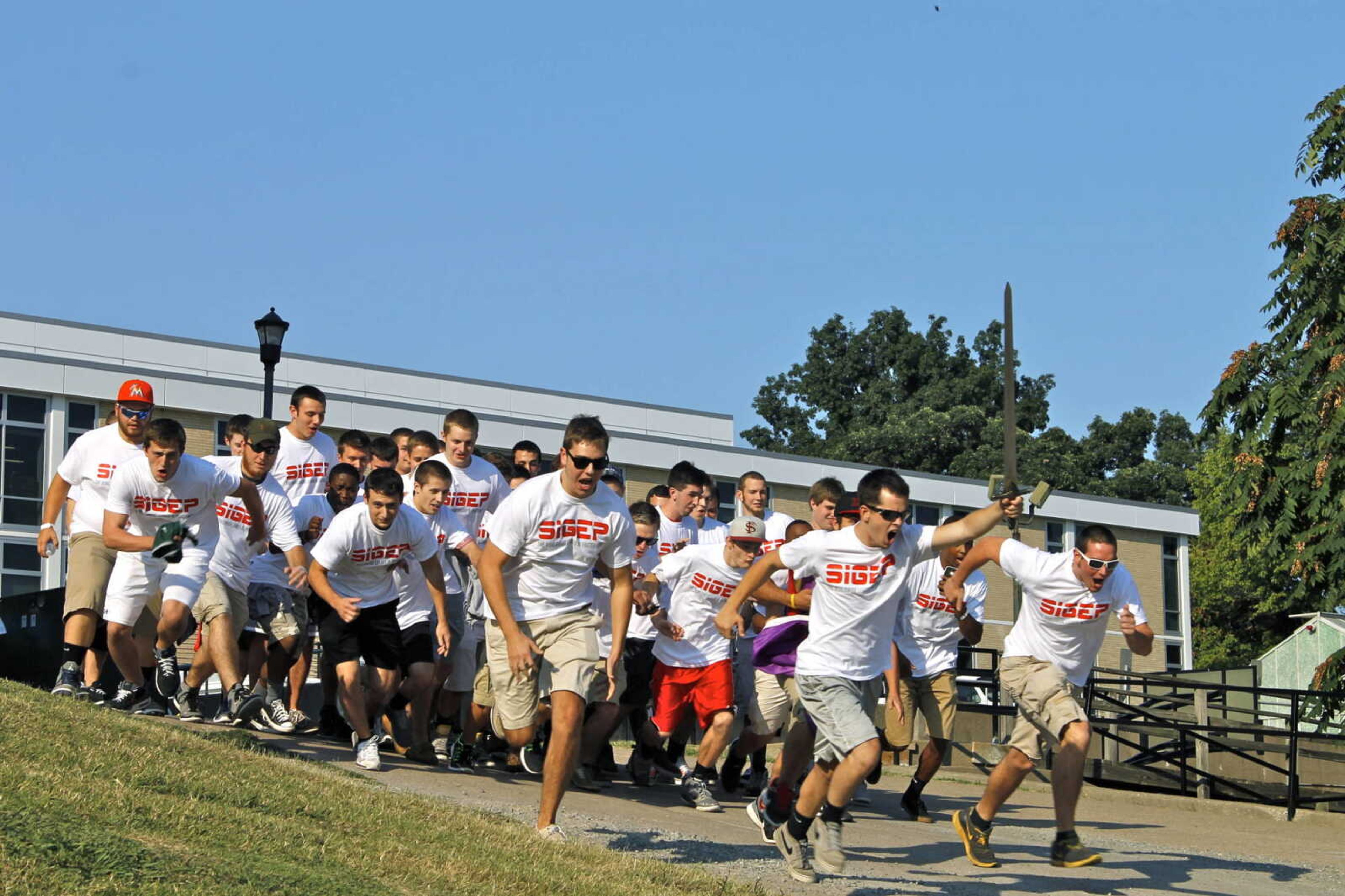Silence filled the room in Glenn Auditorium on Wednesday night as more than 100 women interested in beginning their future in Greek Life sat quietly at their first-ever sorority informational meeting.
Each one sat listening intently, seemingly trying not to make a sound and draw attention to themselves. Director of Greek Life DeAnte' Smith sat in the back of the auditorium quietly observing. It was his first ever Southeast Missouri State University sorority recruitment meeting as well.
Greek Life always has been part of Southeast's Office of Residence Life but just this year has separated into its own department.
"We did this for a couple of reasons, one was to give better access to DeAnte' working with Greek Life, to the rest of the campus community," assistant vice president for Student Success and director of Residence Life Dr. Bruce Skinner said. "But being a director, he's in different meetings and has better access to members of the university community than he would if he were an assistant director reporting to the director of Campus Life. It also provides better access to other campus resources to better integrate Greek Life and what is happening on campus and also provides a better opportunity for DeAnte' to tell the story of Greek Life."
By forming this position the Greek Life director can relay Greek news as well as gather information to report back to chapter presidents. This position was also created to provide help for the nearly 1,200 Greek students on campus. Two graduate assistants are a part of Smith's staff this year.
After just 15 minutes the informational meeting adjourned and the women talked excitedly amongst themselves. Smith got up to leave but was quickly stopped by two interested sorority members. This is Smith's job: to assist, support and advise. He attends more than six Greek meetings a week outside of normal business hours.
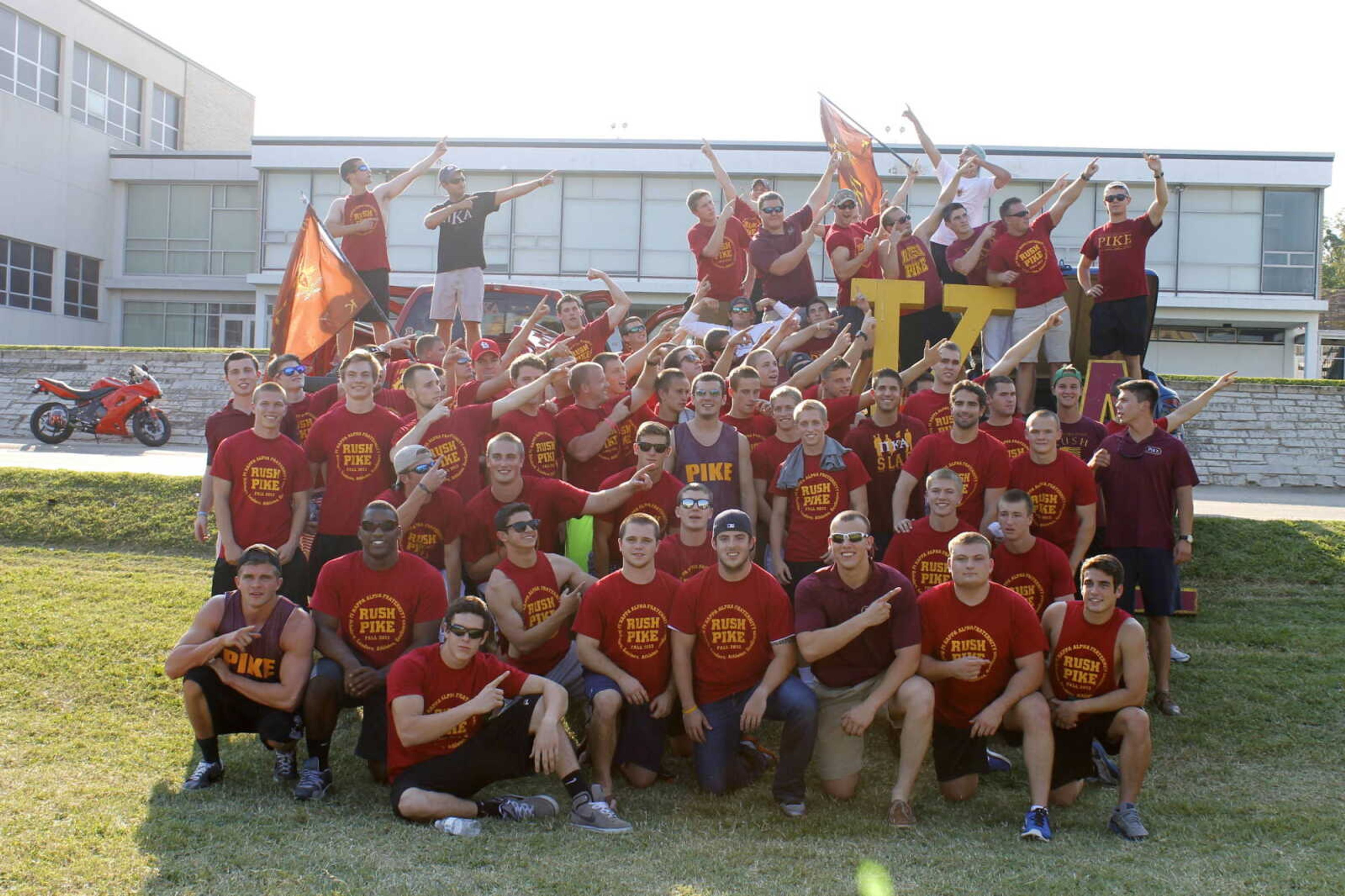
Smith began his position as director of Greek Life on May 6. Although he has been active all summer these are his first three weeks interacting with every aspect of Greek Life at one of its busiest times -- recruitment.
"I deal with recruitment, going to all council meetings," Smith said. "They have three council meetings weekly. They also have executive meetings before those so six council meetings, dealing with recruitment from Panhellenic, assisting with the intake process that National Pan-Hellenic Council chapters do, dealing with new members of all three exec boards, training for the judicial boards, training the Pi Chi groups, which are recruitment counselors for sororities, have officer adviser meetings, adviser training, Greek retreat, go to all the conferences with the councils as well, look over the budget, provide assistance to the graduate assistants that I have. It's a lot more than that but I am just trying to give you the wide spectrum."

Before coming to Southeast, Smith was the assistant director of student engagement for Greek Life at the University of Northern Alabama. That position had the same dynamics as Smith's current position, with fewer expectations.
At Northern Alabama there was no director of Greek affairs. For three and a half years Smith, along with one graduate assistant, oversaw 17 Greek chapters. Smith said the system that he left behind to come to Southeast is not extremely different.
"One thing that I am really loving about this university thus far from the student perspective is that they are actually the ones doing the work and pushing," Smith said. "So my office has been assisting, supporting and advising, but they are really the people out holding each other accountable to make sure that the work is done. It's really rare when I go to conferences to have a student system that believes in themselves and actually puts forth the effort and the work in order to be successful. They're not looking for any handouts or anything to be given to them. They are actually going out and doing work and earning things."
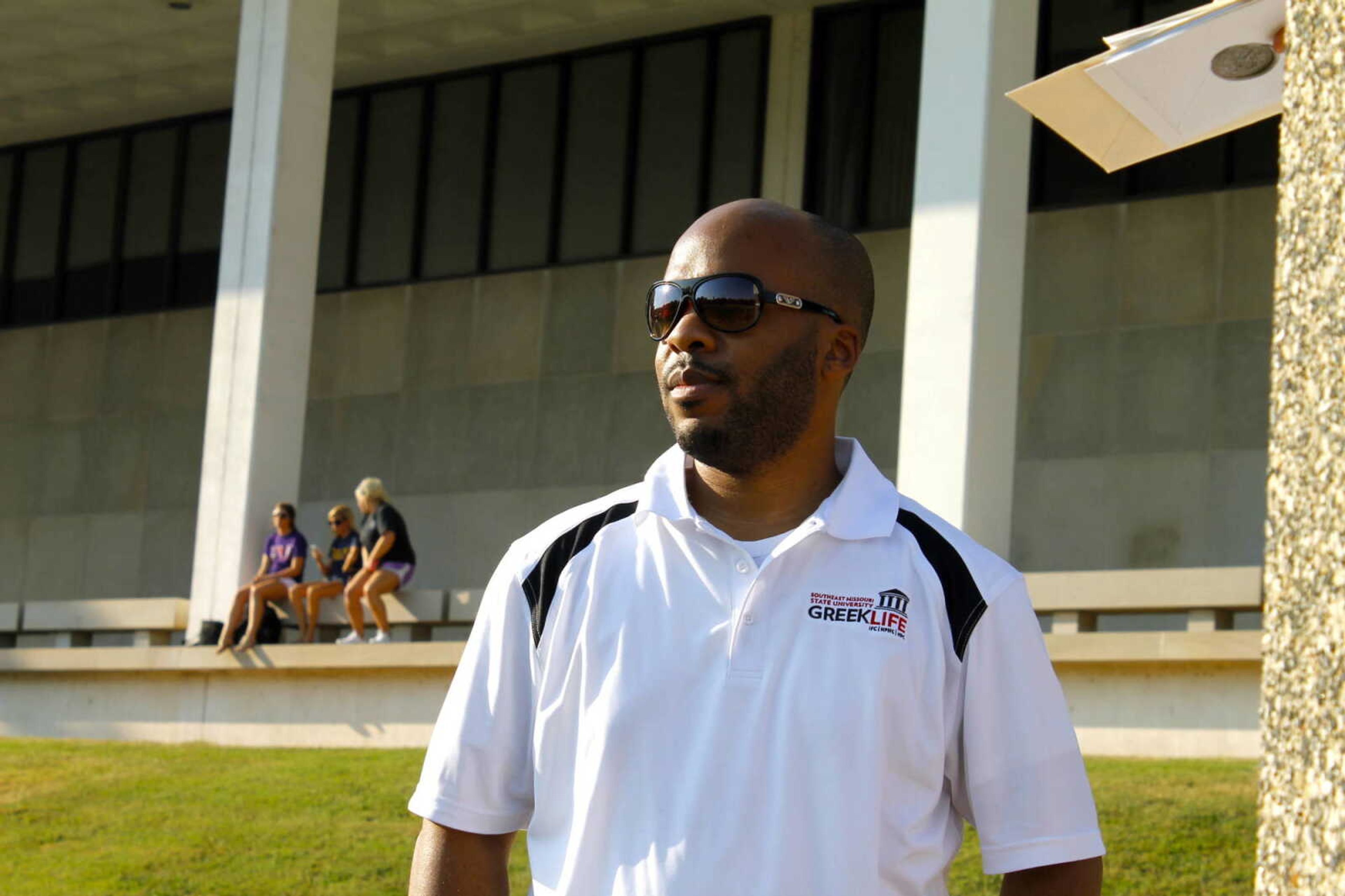
This spring the entire Greek system is planning an event called "Walk a Mile in her Shoes." Smith recommended this fundraiser after its success on Northern Alabama's campus. The event will raise awareness for the prevention of sexual assault against women. Smith hopes to partner with the counseling department that can in turn partner with a non-profit organizations in the community that assist with preventing sexual assault against women.
"It's where the guys in fraternities will walk a mile literally in high-heeled shoes, it's something that raises attention, everyone looks at it, and it's for a good cause," Smith said."We will have a speaker there beforehand that gives you the trends and cross examination of women who get assaulted, some don't report it, and what you can do if you have a friend who has been sexually assaulted that is confused on if she wants to report it or not, how you can support this person. So it gives a lot of positive information."
Smith hopes to get permission from the City of Cape Girardeau to allow the men to walk along Broadway street, and all the money raised will go to the non-profit organization that contributed to the event. Smith said no date has been confirmed yet, but Greek members are hoping to host it sometime in April.

"The difficult part is raising enough money to purchase the shoes for the guys," Smith said. "After you start it one year it's easier because you keep those shoes and just stow it away. Of course, you could purchase a few more as people want to participate, but this year we are starting with having absolutely no shoes and those shoes could be close to $40 a pair."
Smith said this was an event he did annually with Northern Alabama and that people across the nation have started participating in the walk a mile event. According to the walk a mile website, organizations in 36 states have participated with more than 1,500 shoes worn by men participating in the walk a mile foundation program.
This is only one of the many projects executive Greek members have been working on since summer.
Before the academic year started Greek students participated in a huge marketing event to promote Greek Life. They posted approximately 3,000 fliers around campus and in every residence hall mailbox, hosted parent sessions about Greek Life on move in day and attended the first-step and orientation programs over the summer. The Interfraternity Council and Panhellenic members also gave out brochures with specifics about how much it costs to join a particular chapter, what particular chapters look for in new members and other aspects about their communities.
Smith said right now he is focused on becoming acclimated to Southeast's Greek Life and that he has no immediate plans to change things.
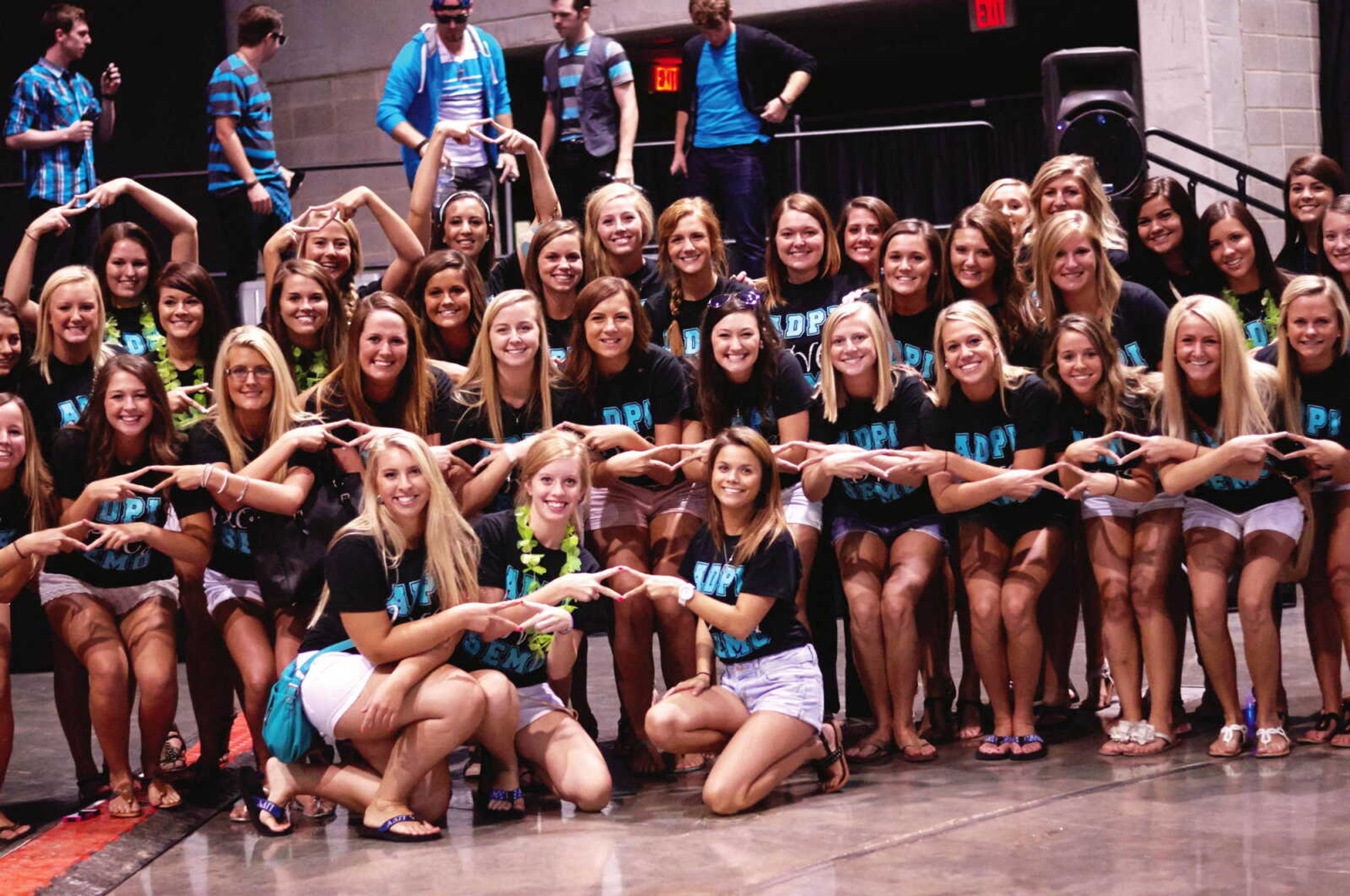
"Before I even think about changes or anything I'd like to get the students input. I won't come into this position and say, 'OK, immediately this is going to change' because it's what I'm used to. There are some things that I will adjust to, so it really depends on the students," Smith said.
However, Greek Life underwent a few changes before Smith accepted the role of director of Greek Life. In addition to Greek Life forming it's own office changes to the judicial review process and Greek housing has also been discussed over the past year.
Housing changes were also considered in the spring of last year. Plans were proposed to move Greek housing to a "Greek Village," a project that would have cost Southeast nearly $30 million dollars and led to an approximated 40 percent increase to Greek students' room and board costs. After much consideration the project was dismissed because of funds.
"There are not currently major facility or significant renovations planned for the Greek area," Skinner said in an email. "We completed our housing master planning process for the Greek area and after sharing these costs and scope of work with our students there was not support for proposals. While everyone likes the ideas, the costs students would have to pay for these kinds of new facilities were not supported by our on-campus students."
Skinner also said the costs would have been an unreasonable given the on-campus living experience Southeast provides. There is not any current talk or planning for anything more than our normal maintenance and care of the current facilities.
The judicial process of determining the correct punishment for a Greek student's infringement has also changed since last year. The IFC, Panhellinic or NPHC council will first decide the appropriate actions of their individual chapters. Those processes and sanctions then will be sent to student conduct for review.
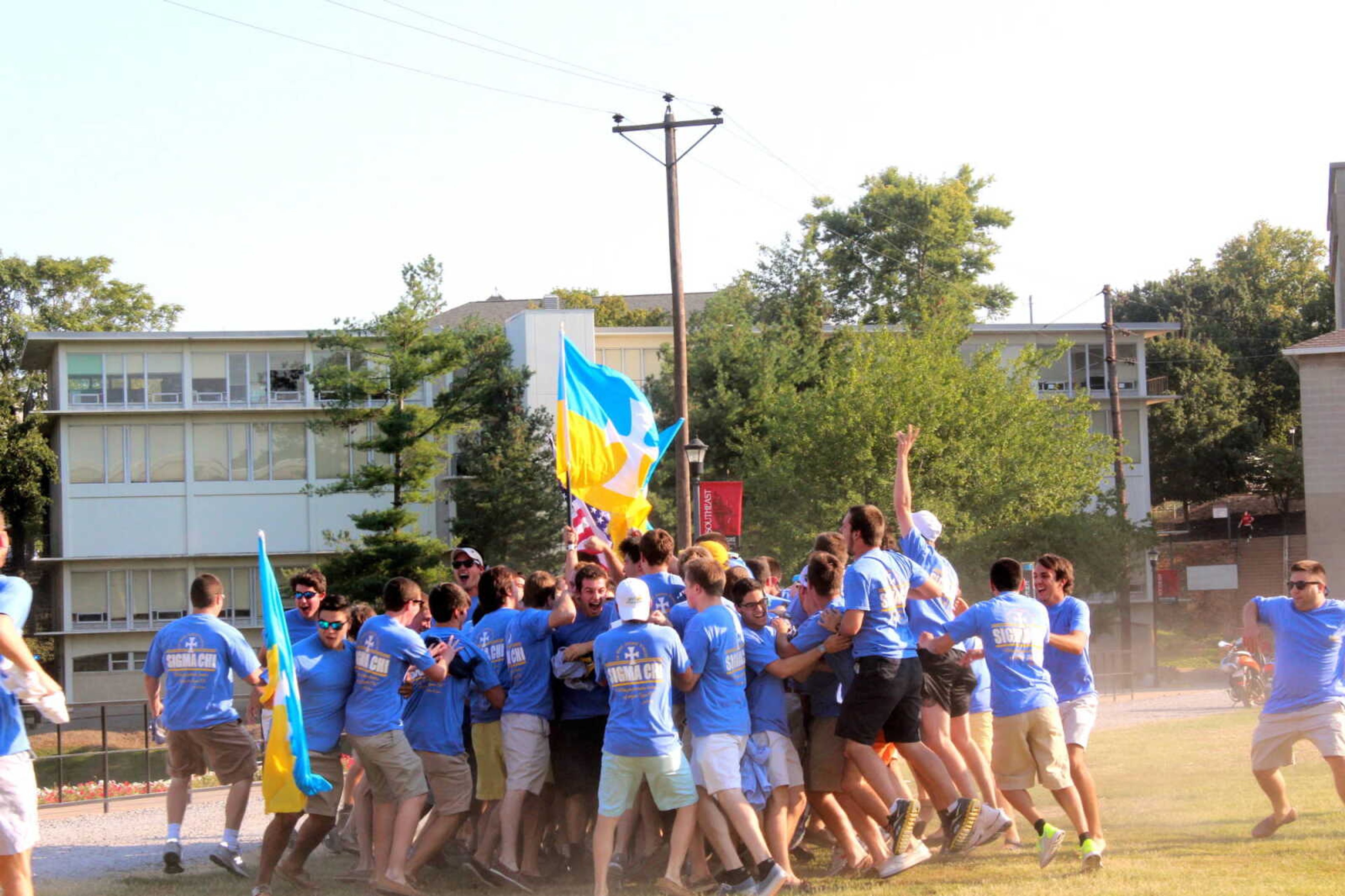
"I think the organization of the new Greek judicial system will not only be beneficial for the Greek community but the campus overall," IFC president Nick Maddock said. "First off, it is important to note that not every Greek case goes through the Greek judicial system. We are and have been committed to strong relationship between the Greek judicial board members and the Office of Student Conduct. We have established on both ends that there are several types of cases that, if an infraction were to be filed, would go directly to the university judicial board and bypass the Greek judicial board depending on the seriousness of the case."
According to Maddock, the fraternity judicial board has already ruled on seven cases since the school year began. One of the biggest reasons why Greek members re-established the judicial system is because a lot of Greek violations are not in violation of university policy or the law. Examples of these violations are recruitment infractions or chapters not meetings the standards set by the governing boards and Greek Life.
"For the cases that do fall within both jurisdictions, open communication is and will be maintained with Dr. [Randy] Carter and the Office of Student conduct," Maddock said. "As governing boards that represent more than 1,000 students on campus, we must demonstrate that we are a legitimate organization on campus and that we can hold each other accountable for our actions."
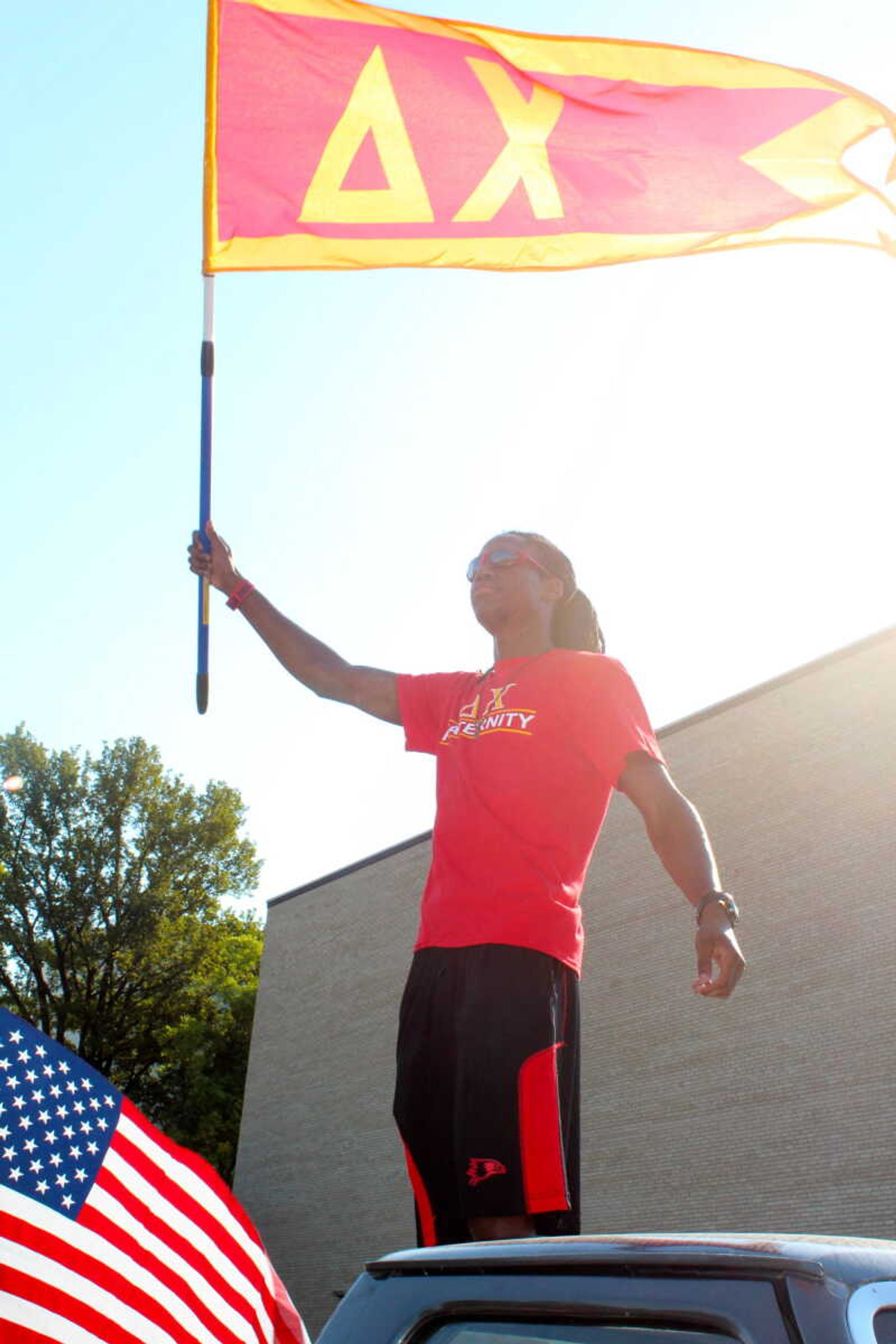
The Office of Student Conduct is still the highest level of Southeast's judiciary system, and if the office of student conduct feels that fraternity and sorority groups have not handled a problem correctly then action needs to be taken by the university. They will then send members of the chapter through a student conduct process in addition to what was decided by the Greek council members.
"This will more or less to give the opportunity to allow councils to hold their chapters accountable that violate things," Smith said. "Everything that we do in Greek Life is student ran and student governed, so this is an opportunity for students to govern themselves. ... I guess this is just a way for them to prove themselves in that they can govern their own chapters. It's not removing student conduct from the process in any way its just allowing them that opportunity."
